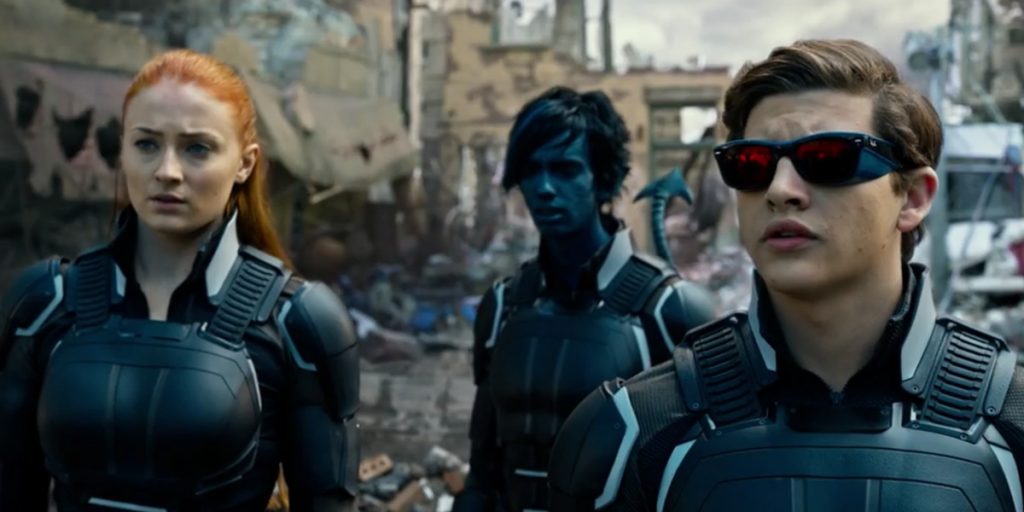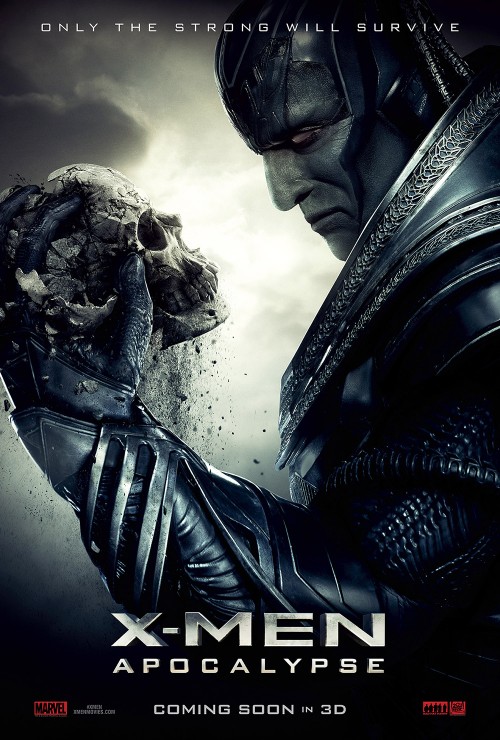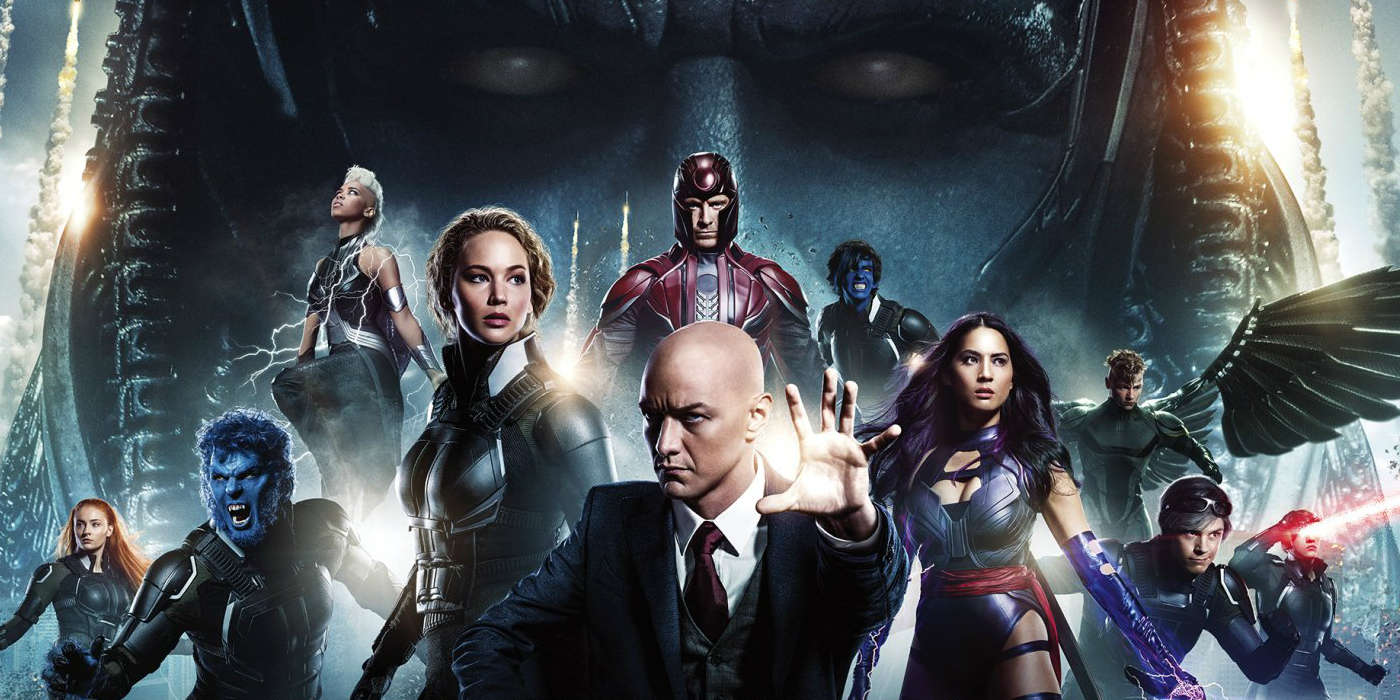When X-men: Apocalypse hit theaters in May, I was excited, especially after the first two films in this prequel wave starring James McAvoy, Jennifer Lawrence, and Michael Fassbender. I left the theater excited about a film I genuinely enjoyed. And then? Critics were underwhelmed and box office numbers suffered from a lack of buzz.
Captain America: Civil War was the best superhero movie of 2016, and Deadpool altered the genre’s course for sure, but I had a great time with X-men: Apocalypse. No, we’re not going to talk about those DC dumpster fires, except to say that Apocalypse made almost as much cash internationally as Suicide Squad (and Deadpool for that matter).
Plenty of folks reacted to Apocalypse with a hearty “meh.” Maybe those individuals are experiencing superhero fatigue. Perhaps there’s a bias against director Bryan Singer. But I don’t agree with anyone claiming Apocalypse is a bad movie. Could it have been better? Oh, for sure, but there was plenty to like. The Quicksilver scene may be the best part of the movie, but it’s not the only good thing about the film.
Here are four things to enjoy about X-men: Apocalypse, whether you saw it in theaters or want to check out the brand spankin’ new Blu-ray just release.
[Spoilers for the entire Trilogy ahead]

1. Mutants Ancient and Awesome
Everyone loves a good origin story, and this movie takes us way back to the first mutant in ancient Egypt a few thousand years ago (En Sabah Nur a.k.a. Apocalypse).
The opening sequence is exciting. The original four horsemen put on a good show for their brief screen time, at least Famine (Rochelle Okoye) and Death (Monique Ganderton) do.
Of course, once Apocalypse wakes up from a very long nap, he needs to replace the original team. Some reviewers were disappointed that the new Four Horsemen didn’t add enough to the story, but their recruitment is part of the fun.
Angel (Ben Hardy), Storm (Alexandra Shipp), Jubilee (Lana Condor), and Psylocke (Olivia Munn) enter the fray as Apocalypse tours around like a college football coach. With such an expansive comic universe to draw from, his drive to replace the entourage offers a chance to get some more characters in the mix.
Then again, we all know who the stars are. Jennifer Lawrence has a bigger role than ever in this franchise as Raven/Mystique and Nicholas Hoult adds more star power as Beast.
Game of Thrones star Sophie Turner joins the cast as young Jean Grey, and Tye Sheridan plays Scott Summers a.k.a. Cyclops. In my opinion, both are far more likable than their counterparts in the earlier run of X-men films.
But yes, Quicksilver (Evan Peters) is the scene stealer once more. His slow-mo rescue sequence is a brilliant crowd pleaser. He’s the one character who might be the most interesting spinoff potential.
But then again, each character just jumps in and out here, and the movie moves at a brisk pace because of it. I didn’t even mention Nightcrawler (Kodi Smit-McPhee), just another treat.
2. Magneto and Professor X
They might be the headliners, but it’s not all about Magneto and Professor X anymore. Yes, they are incredible in the first two movies, but critics of those films also said it felt like the other characters weren’t really developed enough or didn’t get enough screen time. You can’t have it both ways.
We are meeting a new generation of the X-men and developing all these other characters, so Apocalypse can’t be another movie filled with extended dialogue between X and Mags, even if those scenes are fantastic.
Still, I heard plenty of criticism aimed at Magneto’s story (not Fassbender’s performance), how he was marginalized or that his story was clichéd. Personally, I found his story compelling and heartbreaking throughout the trilogy. Does he seem wishy-washy at times, seeming to jump back and forth across the hero-villain line? Perhaps, but this character is seriously traumatized.
He says right off the bat in X-men: First Class that he was never looking for peace. He is pragmatic and able to unite with other mutants. But he’s never sought to please the world, especially the powers that be. It’s no coincidence when we see soldiers coming for mutants who are “simply following orders.” That’s what Nazis did, and Eric Lehnsherr will never forget.
And since I brought it up, some people have criticized the way Eric/Magneto acts when En Sabah Nur takes him to Auschwitz, where we first met him at the outset of First Class, where he was tortured by Nazis and forced to watch his mother be murdered before his eyes. Magneto snaps and destroys Auschwitz. Certainly a moment worthy of philosophical discussion, but if Quentin Tarantino can kill Hitler for cinematic fiction then Magneto can destroy Auschwitz in the same way. Remember, this character is a combination of extreme trauma and power.
3. The History!
One of the greatest things about this current run of X-men films has been the way history plays as a backdrop, nay centerpiece, to the events of these young mutants. First Class featured a marketing campaign all about Cold War events like the Cuban Missile Crisis. That film was set in the 1960s, X-men: Days of Future Past (DOFP) went 1970s, and Apocalypse is all about the 1980s.
A few critics felt like the 80s were squandered, but I don’t think so. For one thing, the cultural backdrop is all over this film, and you can see how much the filmmakers enjoyed remembering the days of their youth. More importantly, the timeline of American and world history is evolving along with new events introduced in each film.
While First Class was mostly about a specific event, Days of Future Past was more about an era (Vietnam, Nixon presidency, etc…). In between those stories, Eric was arrested because he allegedly killed JFK. Yet after he’s rescued, he tells Charles he didn’t kill JFK and was actually trying to save him. Because JFK was “one of us,” a mutant. But all that happened in secret, away from the public’s knowledge, and by DOFP there hasn’t been a mutant incident in 10-11 years. So history is relatively unchanged until that point.
But the stuff happening in secret throughout the Sixties would yield heavy consequences. The Army took mutants who were forced to enlist and shipped them off to military scientist Bolivar Trask (Peter Dinklage). These innocent mutants, tortured in horrific experiments, found a like-minded leader in Magneto, who knew well the pain of government sanctioned terror. Eventually, they’re all outed at the Paris Peace Accords. Then the entire world watched the climactic events of DOFP, and everything had to change over the next decade between films.
So the 1980s can’t be used in the same way for X-men: Apocalypse because the history books in this world are so rewritten that we can no longer expect the 80s as they happened.
 In Apocalypse, the filmmakers show us as much by bringing Cyclops to life in history class. We see the teacher (Ally Sheedy) casually explaining American history, a new timeline in which the events at the White House in DOFP forever changed any America we might readily imagine today. So of course there’s no big 80s event to play on because those things would not have happened on this timeline. It’s a Back to the Future style time variation, and it’s well done.
In Apocalypse, the filmmakers show us as much by bringing Cyclops to life in history class. We see the teacher (Ally Sheedy) casually explaining American history, a new timeline in which the events at the White House in DOFP forever changed any America we might readily imagine today. So of course there’s no big 80s event to play on because those things would not have happened on this timeline. It’s a Back to the Future style time variation, and it’s well done.
If there is a next installment set in the 90s, I would be disappointed if they suddenly included all the events we’re aware of in reality. Their timeline is completely altered, so Bill Clinton to 9/11 and everything in between is no longer a foregone conclusion.
4. Rewatachability
One of the surprising parts of my experience was that while I enjoyed First Class and DOFP a great deal, I had never gone back and rewatched them before this summer. Instead, I spent more time focusing on the Avengers movies. The first one was great, I’ve loved everything about Captain America, and Thor is pretty rockin’ too.
But immediately after seeing Apocalypse, I went back to First Class. That film is startlingly good, and DOFP is even better.
Given how DC properties like Superman, Batman, and the Suicide Squad are being wasted and ruined by idiotic characterization and terrible scripts, I’ve come to appreciate the tone of action, comedy, and drama in these X-men films. I’ve loved this trilogy and will watch and rewatch these movies for a long time.
~*~*~
A quick thought about Apocalypse
A number of people were underwhelmed with the villain Apocalypse, portrayed by the superb actor Oscar Isaac. I’m not listing Apocalypse as one of the reasons to see this film, but he certainly isn’t a reason to avoid it.
I don’t get the criticism, frankly. Yes, Apocalypse is a god of a villain, so he’s not the most nuanced antagonist ever. But his clear god-like presence bent on cleansing the earth allows us to focus on the real key players in this movie, the mutants struggling to find their place in this new world.
No, X-men: Apocalypse is not as good as First Class or Days of Future Past, but it is still a very solid film and loads of fun. If you were looking for the conclusion to a trilogy, I guess that would be disappointing. But this movie achieved what any good comic book should, a nice escape from reality.
I know Apocalypse came out in theaters months ago, but if these X-men “betweenquels” have taught me anything it’s that time is more complicated than we thought. You’ve got plenty of time to pick up a copy of the Blu-ray and decide for yourself if this movie has been underrated or not.

